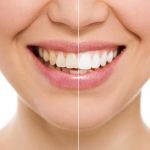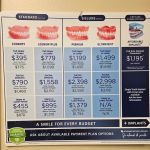How to Use Mouthwash Effectively
Mouthwash is a popular tool for oral hygiene that offers a quick and easy way to freshen your breath, reduce plaque, and fight off bacteria. However, many people don't fully understand how to use mouthwash effectively to achieve the best results. Whether you're looking to improve your overall oral health or target specific issues like bad breath or gum disease, knowing the proper way to use mouthwash is essential. In this article, we'll explore the correct techniques for using mouthwash, when to use it, and how to select the best mouthwash for your needs.
1. The Importance of Mouthwash in Oral Care
Using mouthwash effectively plays a key role in maintaining good oral hygiene. It helps to kill bacteria that may be present in areas that brushing alone can miss, such as between your teeth and along the gumline. Mouthwash can also help in preventing plaque build-up, gingivitis, and even cavities. It's an excellent addition to your daily oral care routine, alongside brushing and flossing.
Research has shown that mouthwash can also improve your breath by neutralizing odors and killing the bacteria that cause them. While it's not a substitute for brushing or flossing, mouthwash acts as a powerful adjunct to a complete oral hygiene regimen. Many brands offer mouthwashes with fluoride that help strengthen tooth enamel and protect against tooth decay.
2. Choosing the Right Mouthwash for Your Needs
There are various types of mouthwashes available, each designed to address specific oral health issues. When choosing a mouthwash, consider the following factors:
If you're primarily concerned with bad breath, look for a mouthwash with antibacterial properties that neutralize odor-causing bacteria. If you're prone to cavities, opt for a fluoride mouthwash that helps strengthen enamel. For those with gum disease or gingivitis, a therapeutic mouthwash with antiseptic ingredients, such as chlorhexidine, can help reduce gum inflammation and fight infection.
It's also important to choose an alcohol-free mouthwash if you have sensitive gums or a dry mouth, as alcohol can exacerbate these conditions. Always read the label to ensure that the mouthwash addresses your specific concerns and follows the recommendations of your dentist.
3. Correct Techniques for Using Mouthwash
To use mouthwash effectively, follow these simple steps:
Start by shaking the bottle of mouthwash to ensure that the active ingredients are evenly distributed. Pour the recommended amount into a cup (typically 20 milliliters or one capful), then swish it around your mouth for about 30 seconds. Be sure to swish the liquid between your teeth and around your gums to ensure thorough coverage.
Do not swallow the mouthwash, as most formulations contain ingredients that are not safe to ingest. After swishing, spit the mouthwash out into the sink. For maximum effectiveness, avoid eating or drinking for at least 30 minutes after use to give the mouthwash time to work. This will allow the ingredients to remain in contact with your teeth and gums longer, providing better protection.
4. When to Use Mouthwash in Your Routine
The best time to use mouthwash is right after brushing and flossing, as it can reach areas that your toothbrush may have missed. Using mouthwash at night is particularly beneficial because it helps eliminate bacteria that have accumulated throughout the day. It's also an excellent option for freshening your breath before social events or meetings.
However, if you're using a fluoride mouthwash, it's best to use it after brushing and flossing, as fluoride can be more effective when it's not immediately rinsed away. In general, it's advised to use mouthwash twice a day as part of your morning and evening routine. Using mouthwash more frequently can lead to oral imbalances or irritation, so moderation is key.
5. Potential Side Effects and Considerations
While mouthwash is generally safe to use, there are some considerations to keep in mind. Overuse of mouthwash, especially those containing alcohol, can cause dry mouth or irritation of the soft tissues in your mouth. This can lead to discomfort or an increased risk of developing oral problems like bad breath or tooth sensitivity.
If you experience any irritation or other side effects, consider switching to an alcohol-free mouthwash or one that is formulated for sensitive mouths. If you have concerns about the ingredients in your mouthwash, consult with your dentist or oral health professional for personalized recommendations.
6. Personal Experiences and Success Stories
Many individuals have found that incorporating mouthwash into their daily oral care routine has made a noticeable difference in their oral health. For example, Sarah, a 35-year-old woman, struggled with chronic bad breath despite brushing and flossing regularly. After incorporating a daily mouthwash with antibacterial properties into her routine, she noticed an improvement in her breath and overall gum health. She recommends it to others who struggle with similar issues.
Another example is Mike, a fitness enthusiast who wanted to improve his oral hygiene after consuming a lot of energy drinks during his workouts. He added a fluoride mouthwash to his routine and noticed fewer cavities and stronger enamel within just a few months. His experience highlights how effective mouthwash can be when used properly.
7. How to Buy the Best Mouthwash for You
Choosing the right mouthwash depends on your specific needs. Whether you're targeting bad breath, plaque, gum health, or cavity prevention, the right mouthwash can make all the difference. Visit reputable websites like Dentistry Toothtruth for expert advice and recommendations on the best products for your oral care routine. Don't hesitate to explore the available options and choose the one that suits your needs the most!







 Dr. Robert S. King, DDS5.0 (3 review)
Dr. Robert S. King, DDS5.0 (3 review) ADVANCED SMILES PC4.0 (205 review)
ADVANCED SMILES PC4.0 (205 review) Surprise Endodontics4.0 (170 review)
Surprise Endodontics4.0 (170 review) Eden Dental, PC5.0 (1 review)
Eden Dental, PC5.0 (1 review) Canton Kids Dentistry: Dr. Farshid Nia5.0 (2 review)
Canton Kids Dentistry: Dr. Farshid Nia5.0 (2 review) Affordable Dentures & Implants4.0 (757 review)
Affordable Dentures & Implants4.0 (757 review) The Importance of Oral Health Education During Pregnancy for a Healthy Pregnancy
The Importance of Oral Health Education During Pregnancy for a Healthy Pregnancy Best Tips for Brushing Your Teeth Properly for Healthy Gums: Essential Techniques for Oral Health
Best Tips for Brushing Your Teeth Properly for Healthy Gums: Essential Techniques for Oral Health Why Skipping Dental Checkups Can Lead to Bigger Oral Health Problems
Why Skipping Dental Checkups Can Lead to Bigger Oral Health Problems Advantages of Porcelain Dental Restorations
Advantages of Porcelain Dental Restorations How Can Diabetes Cause Tooth and Gum Problems? Preventing and Managing Oral Health Issues
How Can Diabetes Cause Tooth and Gum Problems? Preventing and Managing Oral Health Issues Healthy Habits for Promoting Good Oral Health and Hygiene: Tips for a Healthy Smile
Healthy Habits for Promoting Good Oral Health and Hygiene: Tips for a Healthy Smile